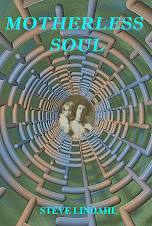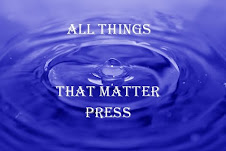 Cloud Atlas by David Mitchell
Cloud Atlas by David MitchellMy rating: 4 of 5 stars
Cloud Atlas is one of the most unusual novels I've read. It is a collection of six books set in different time periods and arranged like a pyramid. David Mitchell has split the first five novellas (I guess I can call them that) into two sections so the reader who starts at the beginning of the entire novel reads the first part of book 1, the first part of book 2, and so on until reaching book 6. Book 6 is presented in its entirety, then the journey down the far side of the pyramid begins with the second part of book 5, the second part of book 4, and so on until the reader finishes book 1. There are probably as many theories for why Mitchell arranged Cloud Atlas in that fashion as there are readers of the book. My own is that he was trying to say that time moves forward but ends up circling back on itself. I think he would have arranged it in a globe instead of a pyramid if that was possible.
The stories are linked in small ways. For example the letters in The Letters of Zedelghem are written to someone who shows up in Half-Lives: The First Luisa Rey Mystery. And in Orison of Sonmi there is a reference to a movie (called a Disney in that future time) entitled The Ghastly Ordeal of Timothy Cavendish, which is another of the books in Cloud Atlas. Each of the six books has its own style. If I hadn't known Cloud Atlas had a single author I would have thought each book had been written by a different writer. Here are a couple of samples to demonstrate the differences:
From The Pacific Journal of Adam Ewing
My judgment of Dr. Goose was unjust & premature. One must be cynical as Diogenes to prosper in my profession, but cynicism can blind one to subtler virtues. The doctor has his eccentricities & recounts them gladly for a dram of Portuguese pisco (never to excess), but I vouchsafe he is the only other gentleman on this latitude east of Sydney & west of Valparaiso.
From An Orison of Sonmi
Oh, our intelligence is not so crude that we cannot conceive of an outside. Remember, at Matins, Papa Song shows us pictures of Xultation and Hawaii, and AdV instreams images of a cosmology beyond our servery.
Mitchell is very meticulous in his use of language. There is an excellent feel for the settings and times. But each time he moved on to a different book I had some trouble getting used to the shift in style. Once I became accustomed to the differences I was fine with it. Also, when I started reading I had no idea that the second part of each story would eventually be told. That was frustrating.
View all my reviews









